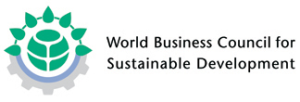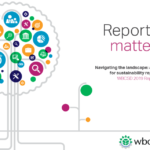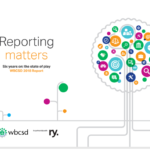
The World Business Council for Sustainable Development (WBCSD) has launched new research, Reporting Matters 2014, showing that the quality of corporate non-financial reporting amongst leading companies is improving, and while there is a great diversity of approaches in the reports reviewed, sustainability reporting is the norm for the worlds leading companies.
The research sample, composed of WBCSDs membership and reviewed using criteria developed by London agency Radley Yeldar, shows leading companies are increasingly demonstrating how trends in the external environment inform corporate strategy. This reflects progress on the long-standing reporting challenges ofprioritisation of key non-financial issues, and connectivity of the content disclosed. Many also set ambitious goals against the issues most material to their business, track progress through KPIs, and provide a balanced picture of performance of their businesses over time.
Specifically the research found:
Year-on-year scores show a 19% improvement in the quality of disclosure on how companies prioritisedthe non-financial issues which matter most to the business and stakeholders
Better links between strategy, targets and performance with line of sight scores improving by 18% on average across the sample
More timely disclosures were offered by the sample with information getting to market on average 4.5 months after year end (2013: 6 months)
WBCSD believes that concise corporate disclosures which connect financial, environmental and social performance will play a critical role in improving business decision-making as well as challenging and changing perceptions of value in turn driving the transition to a more sustainable and inclusive economy.
WBCSDs Reporting Matters 2014 is the outcome of the second review of the WBCSD members sustainability or integrated reports covering 162 world-leading companies from more than 20 sectors and 35 countries. The publication aims to help businesses realize the value of reporting by showcasing how progressive companies are using the reporting process to drive change inside their businesses, and ultimately impact the way capital markets allocate financial resources.
Despite significant progress, however, there remains some work to improve the effectiveness of non-financial reporting. WBCSD believes that without credible tools to integrate natural and social capital measurement and valuation into performance management, non-financial reporting will remain a disconnected, once a year exercise. To counteract this, the WBCSD is working with its member companies and partners to provide business with the necessary tools that will ultimately influence investment decision-making to reward more sustainable companies.
Peter Bakker, CEO and President, WBCSD, said:
The end goal is to get more sustainable companies to be more successful and rewarded by financial markets and customers. To support this transition, reporting needs to transform into an effective comparable source of reliable data and information pulling together financial, social and environmental performance in a concise way.
Paul Polman, CEO Unilever and Chairman WBCSD, said:
It is great to see such a large number of well-respected companies adopting integrated reporting and using it to get the right focus on the long term in their internal decisions and in their external communications. WBCSD has indeed been leading the agenda with many members publishing their own non-financial reports, or including sustainability indicators within their mainstream financial disclosures.
Ben Richards, Head of Consulting at Radley Yeldar, commented:
At its most effective, the reporting process is an opportunity to harvest best practice, to reflect on challenges, to encourage the organization to pause, to plan for the year and to energize people about the future. This research showcases many great examples of companies doing exactly these things. The more that companies embrace this kind of mind set in reporting, the closer well get to shifting the needle on todays biggest challenges.



